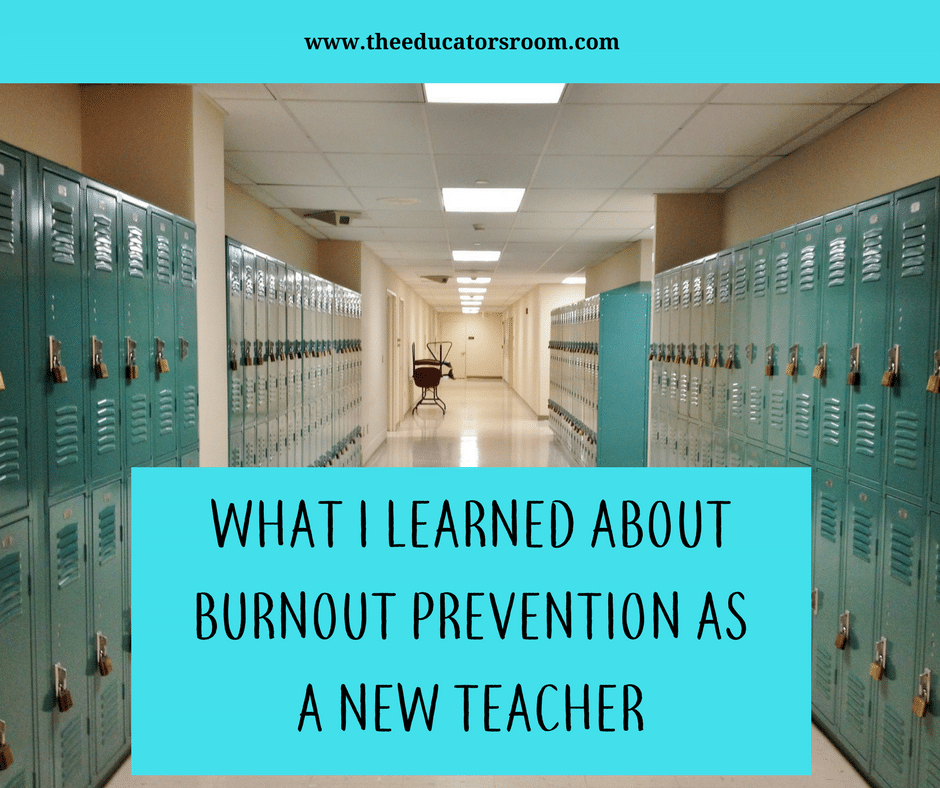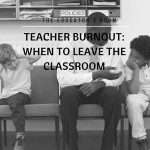by Guest Writer Bailey Cavender
As a first year teacher, I never really understood summer vacation until school ended for the year this past week. Sure, I enjoyed summer vacation while I was a student. It was nice to have some time to read books for fun or to watch a movie without feeling incredibly guilty because I should be studying. As a teacher, though, I hadn’t realized that summer is a critical part of maintaining my mental health.
Before it started, I had been thinking of summer vacation as a time to regroup, tweak my lesson plans, reflect on what went wrong during the year, and make a list of how I could continue to become a better teacher. I thought I could also squeeze in the time to read some books for fun, go on a vacation, and delete every one of my alarm clocks from my phone.
But then, my mentor teacher told me about teacher burnout. Teacher burnout? What fresh horror was that? A look at an article by Corey Hopkins from Hopkins Education Services answered my question. According to Hopkins, the symptoms of burnout range from fatigue and insomnia to forgetfulness, pessimism, and detachment. He mentioned that burnout has become more common in teachers as the profession as become more stressful, and also lists the signs of burnout so that teachers can be aware when they reach that place in their work.
[bctt tweet=”Teacher burnout? What fresh horror was that? ” username=”EducatorsRoom”]
The part of teacher burnout that scared me the most in this article, however, was the symptom, “loss of passion.” Passion for education was the thing that drew me into the field in the first place, and the idea of “not wanting to go to school,” horrified me. Not wanting to pour my all into a profession that I admire and love, simply because I had already given all that I had and not taken time to recharge my own batteries? I hadn’t even considered this as a possibility. Not only would this negatively impact my own life and health, my students would not be receiving the education they deserved. Maybe there was some merit to taking some time off? Further reading confirmed that this was so.
In an article called “The Teacher Dropout Crisis,” NPR cites a report from the Alliance for Excellent Education which claims that around half a million teachers in the United States leave the profession or their current school every year. Not only is this bad for students, it creates a shortage of teachers. The article also points out that between forty and fifty percent of new teachers don’t last five years in the profession. Having read about teacher burnout, this made sense to me.
Another article, this one published by the Association for Psychological Science titled, “Want to Excel at Work? Take a Vacation” and other similar articles argue that it is best for employees to disconnect from their jobs. “Employees need time to mentally recharge in order to stay sharp and engaged on the job,” the article argues, and further points out that vacations help reduce stress. The article specifically mentions teachers and a study completed by Sabine Sonnentag from the University of Mannheim. In the study, they found a two week vacation left teachers feeling even more excited about the work that they were doing, and more engaged in their jobs than they had been before the break.
The Guardian published an article before Christmas about the importance of teachers taking advantage of the Christmas holiday to recharge. The article recommended limiting the amount of time that a teacher spends in their classroom, suggesting that a teacher should actively try to not think about school for at least a few days. Take time for yourself, they advised, so that when the new semester starts you are experiencing a second wind.
These articles resonated with me because I have a hard time turning off my brain. I want to make sure that my students are getting the best education possible, and for me, that means getting as much prep done over the summer as possible. Take time for myself? But I have a curriculum to tweak, conferences to attend, and so much to learn… and, I realized as I read about teacher burnout and the importance of resting, all of that will keep for later in the summer. I can take some time to recharge before I begin work again.
[bctt tweet=”I realized as I read about teacher burnout and the importance of resting” username=”EducatorsRoom”]
I’m not one to argue with scientifically proven studies, and I certainly don’t want to burn out, so I plan on taking advantage of my summer. I’m going to read a book for fun, and I might run away to play on the ocean for a while. I’ll take the time to do some writing. Then, when August rolls around, I’ll be ready to jump back into the job that I love, feeling refreshed, reflective, and ready to teach my students with all of my newly discovered energy.







The long vacation is only necessary to avoid burnout because of 2 factors:
A. Not enough time to prepare to have students throughout the school year.
B. Low salary.
Raise the salary and give teachers enough time to plan for students in their work day and our schools would be the best in the world.
Teacher’s starting salary should start at 50,000 a year and only top off at 80,000. And that is the most any administrator should make too. (Adjusted for inflation)
And then teachers should have a 3 year internship that only pays 20,000 a year before they can have their own classroom.
They should be responsible for a years growth for all their students. If they don’t make the years growth in 95% of students by their 3rd year of internship they should not be able to be a teacher.
They should also be fired if they cannot get a years growth in 95% of there students in any given year.
Teachers are not parents, friends, or aunts, or uncles, or babysitters, I really nannies. They are teachers. We need to treat them like so, and stop calling caregivers teachers.
You make the line clear, allow teachers time to prepare to be teachers, and allow them time to prepare to teach students, you pay them to be teachers and give them the professional status, –all of a sudden you have well prepared teachers that act like professionals and our students can learn. Kids make amazing growth and there is little need for tests.
Bailey,
Your committment, your thoughtfulness, and your analytical skills are to be commended! Yes, let’s take a break so we can return to be the best we can be again!
Molly